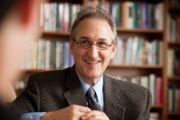
While writing this article I was faced with a major challenge: How would I pack all of the important information that was covered in a two-day workshop that enabled change and healing into just a few paragraphs on a web page? After all, a single article can only report everything discussed during the sessions in a very superficial way. The good news is that the workshop was filmed, allowing for a more comprehensive report to follow. For now, I will try to provide a few of the highlights from the “Un-doing Undue Influence” workshop and promise more to follow at a later date.
The workshop took place not far from the center of London in the “quaint” and comfortable surroundings of an English hotel August 23 and 24, 2014. The subtitle of the workshop was “Healing Yourself and Others from Undue Influence.” Steve Hassan, one of the foremost authorities on cults and mind control, led the discussions. Hassan is a Nationally Certified Counselor (NCC) and Licensed Mental Health Counselor (LMHC) in the United States and is the author of two of the most respected books on those subjects.
During the workshop Steve Hassan, along with input from other cult survivors, academics and therapists, took the audience on a journey. Those in attendance not only discovered why destructive behaviour and patterns exist but also how to recover – and to be aware of triggers that indicate that more recovery work will be required.
Here is an outline of the program:
Learning
- Distinguish between a healthy and an unhealthy (or undue) influence
- Develop a healthy relationship with oneself after a controlling relationship
- Think more strategically, practically and intentionally in all areas of life
Topics presented:
- The BITE model: A step-by-step approach to understanding undue influence
- The continuum of influence—from healthy to unhealthy
- History of thought from Lifton’s thought-reform model to Hassan’s BITE model
- Dual identity: authentic vs. cult identity
- Triggers: how to identify and neutralize them
- Phobias: how to understand and overcome them
- Arenas of influence: family systems, one-on-one relationships, groups, religious, political, business, pseudo-therapy, and large group awareness trainings
- Human trafficking and terrorist groups
- Raised in a cult: special issues that create more difficulties than those who were recruited after age eighteen
Day One
Bo Juel from Advocates for Awareness of Watchtower Abuses (AAWA) kicked off the first day of the “Heal Your life from Undue Influence” workshop by explaining how “things” got started for him as he related his own experiences. “When I left the Jehovah’s Witness cult at 23, I did not think I needed to see a shrink – I did not think they could help – maybe they would even do some damage.”
It was much later when “real life” collided with his pain that Bo peeled back some of his experiences and started a small group in Norway to bring together other ex-JWs. That group rapidly spread to Denmark and in just two weeks they had gained over 200 members. Bo explained: “What became painfully obvious was that help was needed out there for recovering ex-JW’s and that some are not aware of the toxicity of their thinking and behaviour.”
After his divorce, Bo said he realized that everyone who leaves a high control group should seek professional help. They have the skills and knowledge to suggest the right steps that can help lead to eventual recovery.
In 2012 after Bo began a campaign working with journalists, nineteen newspaper articles were published within one week. Those articles explored his personal experiences of cult survival and also provided details about Jehovah’s Witnesses secret courts (“Judicial Committees”). He said the articles described how children are brought before “old men to tell their stories of abuse.”
Bo then shared with the audience how he was sexually molested from age 4 until he was 9 by a Jehovah’s Witness. He described how he was taken to the police by his parents and why they later dropped the case due to the persuasion of their congregation elders.
“The guy walked,” Bo recalled. “Sure, he was disfellowshipped…but he was reinstated by a neighbouring congregation and went on to abuse four or five other children…This made me angry [and] I am not the kind of guy who can watch this shit going on.”
Bo then explained how AAWA was started to bring people together and also how the organization is continuing to change. On the one hand it has been raising public awareness regarding abuses, but is also becoming more knowledgeable about the common factors of undue influence used by Jehovah’s Witnesses and other cults. He said, “We need to raise awareness in the public’s mind about how they use ‘undue influence,’ whether it be a business cult like Scientology, human trafficking or political cults. They all use the same techniques.”
Every contributor expanded on the theme of using “undue influence” with Steve Hassan leading and facilitating the sessions. Throughout both days members of the audience were encouraged to share their personal stories of undue influence. The sessions were interspersed with academic evidence and doses of therapeutic reflection and support.
As the stories unfolded, whether it be Scientology, Jehovah’s Witnesses, Family of Love, some obscure Indian cult, multi-level marketing, extremist political groups (such as MEK, an Iranian terrorist group) or human trafficking, the connections were made and described showing how high control groups operate and maintain undue influence over their membership.
Steve referenced the work of numerous experts whose ideas and research have formulated his approach to recovery and awareness. He referred to the work of Robert Lifton and Judith Herman. He pointed to Judith Herman’s chapter on “Captivity” in her book Trauma and Recovery. She explains how – as opposed to a single traumatic event that can happen at random – prolonged and repeated trauma can only occur when the victim is completely under the control of the perpetrator and is unable to leave. (This is the case where cults often hold their members in mental captivity.) Steve expanded on this issue, “Captivity brings the victim into prolonged contact with the perpetrator and creates a special type of relationship, one of coercive control.”
This will be true whether the victim is taken captive entirely by force or by a combination of force, intimidation and enticement as is the case for most religious cult members, battered women and abused children. The perpetrator becomes the most powerful person in the life of the victim, and that perpetrator shapes the psychology of the victim based on his or her own actions and beliefs. The first goal appears to be enslavement of the victim, and this is accomplished by exercising despotic control over every aspect of the victim’s life. But simple compliance rarely satisfies the perpetrator because of a need to have a psychological reason to justify criminal behavior, and the victim’s affirmation is required to achieve that goal. Ultimately, the goal appears to be the creation of a “willing” victim. (Herman, 74-75)
Steve showed how fear arousal and maintenance enforced loyalty to the aggressor and also resulted in a state of self-denunciation by the victim – whether the aggressor is a person or an organisation. Because of isolation, dependence on the group for feedback, and living in a state of constant hyper-arousal, it did not take much for guilt to become a powerful control mechanism resulting in strange behaviour (even the inability to hold a normal conversation) would result.
Contingent expressions of “love” and “hope” also instilled particular behaviors.
Steve presented a video as he explained how “undue influence” works within the “Moonie” cult. He paused the video at various junctures to explain what techniques were being used. The NBC Today report (below) shows what one family faced – and their helplessness against cult techniques. It also shows how, with the use of a planned and strategic approach, a process was set in motion that created an opportunity for the eventual recovery of their daughter. Watch the video and you will see the techniques as they are being used.
Steve gave some warning signs to look for if a person is concerned about a loved ones change in behaviour. They included changes in commitments whether they be educational, financial or health. There can also be radical personality changes. A full list can be found here.
He described the stages and techniques used to gain control of a person’s mind with the use of “undue influence.” Details can be found here. He also discussed the role of the fundamental attribution error.
In social psychology, the fundamental attribution error (also known as the correspondence bias or attribution effect) is a human tendency to place an undue emphasis on internal characteristics to explain someone else’s behavior in a given situation, rather than considering external factors.
Such factors to take into consideration in this context is the undue influence used by cults and the lies that are told to recruit and retain members.
Steve argued that what was essential is “identifying and recognizing healthy and unhealthy influences and sorting through patterns and not just getting away from bad patterns, but thinking about healthy patterns as one more step on the road to recovery.” He pointed out that we need to identify healthy organizations and see organizations on a continuum. Healthy organizations are constructive and respectful; unhealthy organisations promote cloning and often have a “top down” obedience model.
“Studying people who have overcome trauma and who are now living amazing lives,” Steve said, “we are realizing that we are ‘learning organisms.’ In the last twenty years the idea of nueorogenesis is being understood. This work is exploring how we can regrow cells. As therapists, we can let people know that there is hope and they can, really can, recover.”
Steve emphasised the importance of modelling and why the BITE model was developed to help people determine whether or not a group is practicing destructive mind control and undue influence techniques. He said the BITE model helps people understand how cults suppress individual member’s uniqueness and creativity. BITE stands for the cult’s control of an individual’s Behavior, Information Control, Thoughts, and Emotions.
He continued, “It is important to understand that destructive mind control/undue influence can be determined when the overall effect of these four components is to promote dependency and obedience to some leader or cause. It is not necessary for every single item on the list to be present. Mind controlled cult members can live in their own apartments, have 9-to-5 jobs, be married with children, and still be unable to think for themselves or act independently.” This resonated with the audience.
Dr. Alexandra Stein stood up and mentioned her work on Comprehending the Incomprehensible – how cults and ideological extremist groups operate.
Celeste Jones shared her story of being raised within the Family of Love (watch and listen to the language of the cult survivor and cult defenders in this video of Celeste’s sister’s interview on GMTV).
Mary Kelly talked about her involvement with a therapist cult.
Michael Finch explained how he took his life back after 30 years of undue influence by Guru Maharaji (the Lord of the Universe, Prem Rawat). He has written a book about his experiences.
Arthur Buchman talked about his involvement as a member of two different cults – first a yoga group and then an occult, pseudo-Christian music group. In the later group he was in solitary confinement for twelve years composing music for the leader.
It was also quite evident that the nature of “undue influence” was familiar to all the former Jehovah’s Witnesses in attendance.
Steve shared Philip Zimbardo’s “Prison Experiment” video. This famous video showed how people adapt to a cruel environment when there are no clear rules. In 2002 Dr. Zimbardo was President of the American Psychological Association. He is now Professor Emeritus at Stanford University where he taught a course for fifteen years called “The Psychology of Mind Control.” He used Hassan’s materials from his first book, Combatting Cult Mind Control, as reference resources.
Steve also discussed the work of Stanley Milgram from Yale University and his social psychology experiments in the 1950’s which measured the willingness of study participants to obey an authority figure who instructed them to perform acts conflicting with their personal conscience.
The Philip Zimbardo “Prison Experiment” video.shows how people went from being part of an experiment into an unhealthy “normal lifestyle.” The “guards” began to behave in sadistic and extreme ways; some “prisoners” had nervous breakdowns as result of extreme stress reactions. The experiment was stopped early because even Zimbardo himself got caught up in the de-humanizing “dynamics of human behaviour.” The power and effects of the situation created by the experiment changed even the dynamics of the research team.
Philip Zimbardo went on to write The Lucifer Effect. An interview with Zimbardo by Steve Hassan can be found here. In this video Zimbardo talks about the Stanford prison experiment and also the “heroic imagination project” he set up to teach people to become “heroic” and good citizens within schools. Part of this project looks at focusing on “the other” and being less egocentric.
Steve showed another video from Dr. Phil, an American talk show host which explored how average “good” people can be unduly influenced to do bad things.
Steve also shared a video explaining the Solomon Asch conformity study. This was a series of laboratory experiments directed by Solomon Asch in the 1950s that demonstrated the degree to which an individual’s opinions can be influenced by those of a majority group.
This idea of being a “hero” and not just a “cult survivor” was picked up again by Jon Atack a former member of the Scientology cult (author of Lets sell these people a piece of blue sky) but now an expert in extremist groups. He described how by connecting to our “inner hero” we can actually help others.
There were other contributors like Masoud Banisadr, a former member of MEK (an Iranian terrorist organisation). He displayed images that showed how his family changed in appearance.He explained the mental changes that took place and described this kind of undue influence as similar to a virus. “As long as there are ‘open gates’ that allow the virus to spread,” he said, “cults and extremist groups will have a free hand to continue. You do not bomb a virus. You may isolate it and vaccinate against it. You [can] treat it because you have researched what is really going on.”
He continued,
“I suggest that we need, urgently and seriously, to conduct more research in order to understand the phenomena of destructive cults and mind manipulation. We need to inform and educate society and especially young people about these phenomena and the dangers they pose. We must criminalize the brainwashing and enslavement of people, just as we banned the old slavery. We need to help people who are on the road to killing their personality and individuality, just as we try to prevent would-be suicides. We have to help the families and friends of those who are enslaved in cults to rescue their loved ones, and encourage and give moral and financial support to those who want to escape cults.”
A presentation on one of the largest ever empirical studies of former cult members was given by Professor Rod Dubrow-Marshall from the University of Derby. Rod described how cult survivors who were treated at the Wellspring Retreat and Resource Center in Ohio had higher levels of psychopathology which was related to the extent of their identification with their former group and the extent of undue influence in the group environment. This research showed how the treatment programme at Wellspring was highly effective for most clients and indicated that a ‘totalistic identity’ was present in former members which related to the reported levels of psychopathology. Rod’s presentation was followed by an outline of the types of therapeutic support that can work with former cult members by Dr. Linda Dubrow-Marshall from the University of Salford. Linda argued for an approach based on recognising the challenges for cult survivors in creating authentic trusting relationships, the crucial need for self-care after the cult and the importance of a psychotherapeutic approach that contains a psycho- educational component about undue influence and cults. This is the approach which Linda and Rod take with RETIRN (the Re-Entry Therapy Information and Referral Network). Both Rod and Linda were also part of the Friday press conference. More details about their research and thinking can be found here.
Lloyd Evans described his work with JWsurvey.org and how future collaboration and understanding how undue influence is being used by other cults will add to his work exposing the cult of Jehovah’s Witnesses.
Steve Hassan pulled all the ideas, stories and experiences together by explaining what help was available and the need for more trained therapists who actually understand the process of cult recovery.
He explored the common complaint that therapists often “ignore, minimize, or simply do not understand” the deception, manipulation and undue influence that are hallmarks of the cult experience. He said:
“Many people who have been unduly influenced by cults are mistakenly directed by their therapists to look at childhood issues to explain why they ‘joined’ the cult, ignoring the fact that most members are deceptively recruited.”
Steve then shared how he had been deceptively recruited into the Moonies by three young women. He continued:
“After receiving specialized counseling, most ex-members realize that they have endured years of unnecessary suffering. Individuals who left cults or abusive relationships as long as 30 years or more ago, still suffer from beliefs programmed by the cult. They often experience a variety of psychological and relationship problems, anxiety disorders, panic attacks, sleep disorders, lack of trust, paranoia and feelings of alienation. Untreated, they often become especially vulnerable to the normal stresses of life, such as health problems, the deaths of friends and loved ones, divorce and, especially in recent years, economic pressures and the threat of terrorism.”
He talked about triggers and being aware of unconscious associations of words, place and time. He explained how he deprogrammed the association of the word “Moon” with crazy Messianic leader and re-associated it with the moon in the sky. He suggested that people do similar deprogramming of words so that they can develop a healthy “positive association” with triggers.
Steve talked about the best approach in dealing with loved ones still trapped in cults. He called it the strategic interactive approach and he explains the whole method in a video called – What is the strategic interactive approach? He said the aim is not to try and control the person, but to respect the person and to try and empower the person to think for themselves. He said even though they are not allowed to talk to you, that does not mean you cannot try to talk to them. When you do, drop comments about other cults that operate in similar ways as a method to get them to think and begin to reason on those similarities.
He said the way to recover is to “know yourself,” to understand how the mind works. Have a “toolbox” of recovery tools to move toward self-confidence and higher self-esteem.
Having an authentic notion of wholeness and understanding about what “feels right” to us – and ensuring our mind and body have a good relationship with each other – creates “a life that works.” Steve continued:
“Be in your body. Know how the mind works. Be forward thinking. Set goals that are attractive and achievable. Remember the fundamental attribution error. Develop skills. Surround yourself with trustworthy friends. And enhance your life with a culture of values and tradition.”
This article can not do justice to the wealth of information shared at this gathering. Everyone interested in cult survival – and the role of undue influence – should begin by visiting Freedomofmind.com
More information
What is Undue influence?
London Press conference of cult experts Link
London Press Conference Freedom of Mind Link
- Dr. Linda Dubrow-Marshall
- Lloyd Evans
- Jon Atack
- Prof Rod Dubrow-Marshall
- Marc Latham
- Arthur Buchman
- Marc Latham, Richard Kelly: Logistics
- Solomon Asch Conformity Study
- Masoud Banisadr

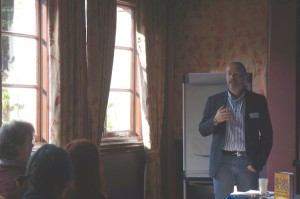
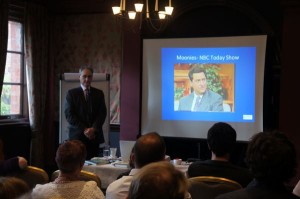
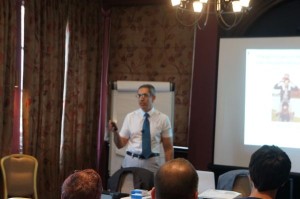
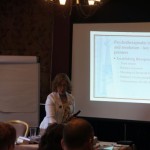
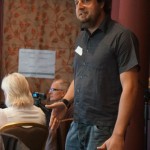
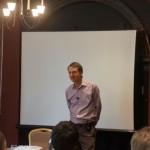
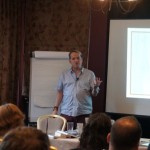
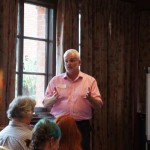
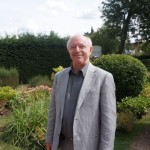
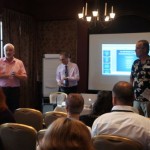
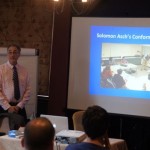
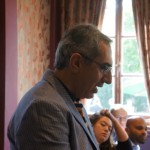
Susannah, you have done a masterful job of reporting the highlights of last week’s London Workshop. And I should know, I was there.
I thought the “I” in the BITE model stood for “Information” control?
Thanks, yes, it has been changed.
JWI, that is correct, information control, which the Tower is totally aware of and does its best to control info from and to members.
Amazing how you managed to condense the info Susannah shared shared shared …
I just found this website and this article. I am a walking miracle! God brought me out of the JW 13 years ago, and my family still won’t have anything to do with me, except business. Crazyyyy!
I would love to talk to a Dr about this situation… Share tools that have helped me over the years.